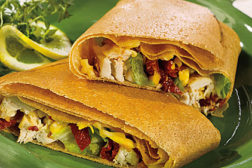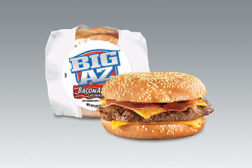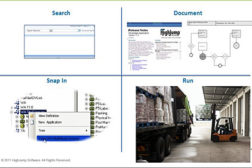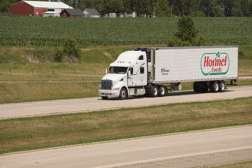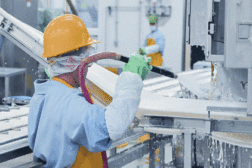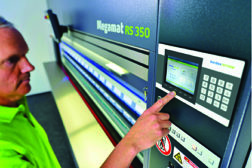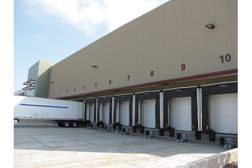Articles by Marina Mayer
Bakers whip up whimsical treats and lower-carb bread options for restaurants, in-store bakeries and more.
Read More
State of the Industry: Masters of the Dinner Table
New meal and entrée selections spur a growth in foodservice.
July 11, 2013
Moving Product Through the Supply Chain? There’s an App for That
Refrigerated and frozen food processors can better manage the logistics of their product portfolios thanks to state-of-the-art supply chain solutions.
July 11, 2013
Surpassing Sustainability
Refrigerated & Frozen Foods honors Hormel Foods for its green supply chain achievements.
May 9, 2013
Off the Grid
Today’s processors can choose from an assortment of energy-efficient solar roofing systems that provide over-the-top functionalities.
May 8, 2013
Tracing Your Steps
Mastering a safe food plant is one thing—maintaining it is another. Find out what solutions are available for keeping up with today’s ever-changing traceability and sanitation guidelines.
May 7, 2013
AS/RS: Multi-Tasking Machines
Today’s automated storage retrieval systems live up to their name by providing a multitude of functions for refrigerated and frozen food applications.
March 7, 2013
The Great Divide
Today’s insulated walls and panels deliver bright aesthetics, energy efficiency and cost-effective solutions.
March 6, 2013
Elevate your expertise in refrigerated and frozen foods with unparalleled insights and connections.
Get the latest industry updates tailored your way.
JOIN TODAY!Copyright ©2025. All Rights Reserved BNP Media.
Design, CMS, Hosting & Web Development :: ePublishing
